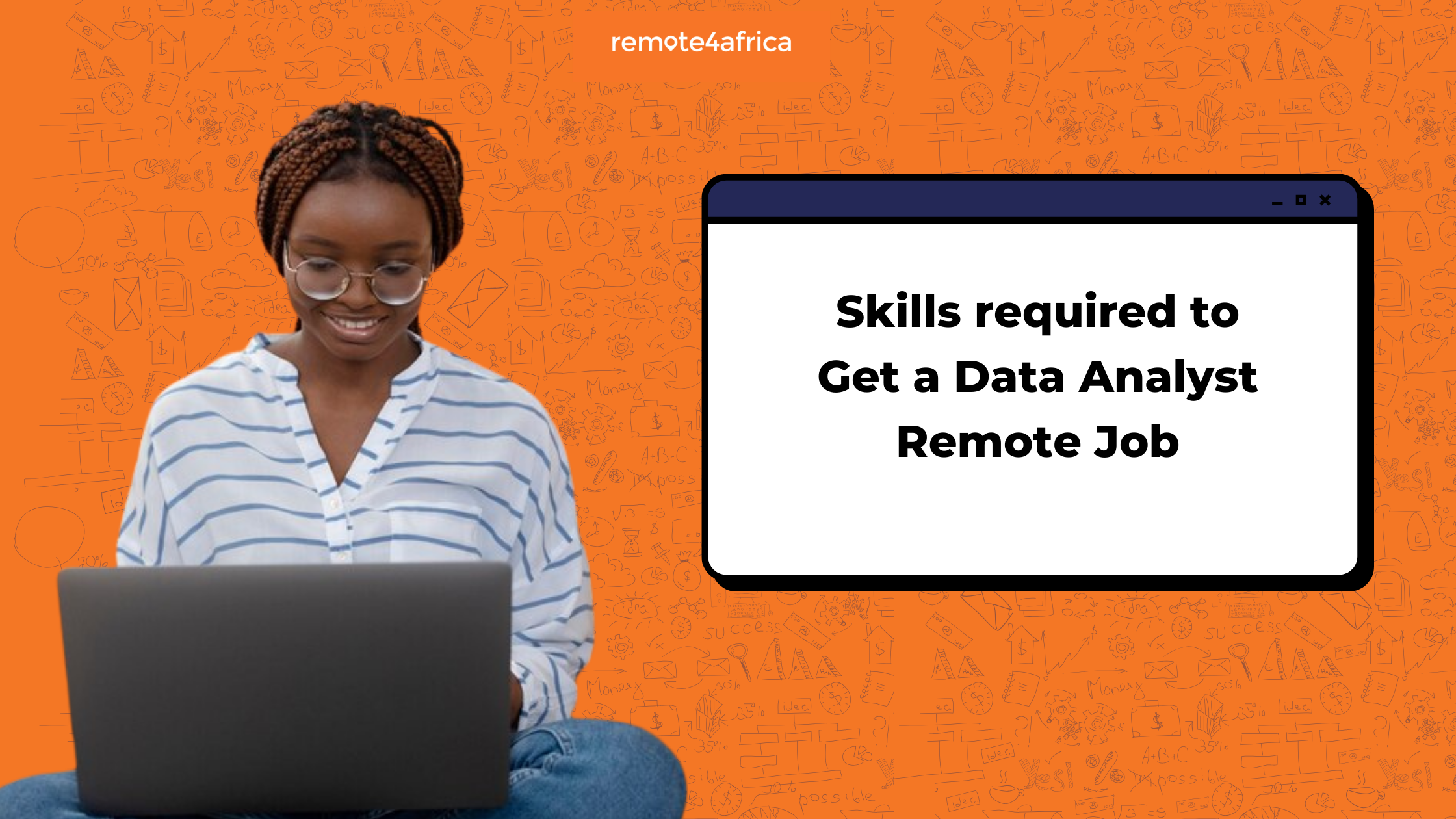Skills Required to Get a Data Analyst Remote Job

Did you know that data analysis is one of the fastest-growing professions in the present world, and remote data analysis is even more so? This is not so surprising, considering that the world presently operates on data. Every aspect of human life can be recorded in data; as long human digitally communicate and connect, data wont be leaving anytime soon. So, you see why the need for data analysts is not going down anytime soon.
According to the World Economic Forum, out of the seven top professions post-2020, data analysis ranks highly. A report released by the US Bureau of Labor and Statistics predicts a 25% growth in remote data analysis as a profession. Here is how you can be a part of that percentage through these open remote data analyst roles.
Who is a remote data analyst?
A remote data analyst is a professional who performs data analysis tasks and responsibilities remotely, typically from a location outside of a traditional office setting. A remote data analyst would use various tools and techniques to collect, analyze, interpret, and present data to support business decision-making processes.
The skills that are required for you to possess as a remote data analyst are not really different from the skill set and qualifications of your in-office counterparts. The major difference is that, as a remote worker, you enjoy the flexibility to work from home or any other location as long as you have an internet connection.
Additionally, as a remote data analyst, you would need to collaborate with the remote team using communication and collaboration tools to fulfill your job duties effectively.
What are the skills required to be a remote data analyst?
In order to become a competent remote data analyst, the first step is to learn how to actually become a data analyst. It doesn't end there, you also need to have in dandy, some skills in demand, either soft skills or hard skills, here are some important skills that you must possess.
- Data Analysis Skills: Ability to analyze large datasets, extract insights, and make data-driven decisions.
- Statistical Analysis: Understanding of statistical concepts and methods to interpret data and draw conclusions.
- Structured Query Language (SQL): Proficiency in writing SQL queries to retrieve, manipulate, and analyze data stored in databases.
- Programming Skills: Knowledge of programming languages like Python or R for data manipulation, analysis, and visualization.
- Data Visualization Tools: Familiarity with tools such as Tableau, Power BI, or Matplotlib or Seaborn in Python for creating visual representations of data.
- Communication Skills: Clear and concise communication is essential for presenting findings, collaborating with remote teams, and explaining technical concepts to non-technical stakeholders.
- Data Cleaning: Ability to clean and preprocess data to ensure accuracy and reliability in analysis.
- Data Mining: proficiency in techniques to discover patterns, trends, and insights from large datasets.
- Machine Learning: A basic understanding of machine learning concepts and algorithms can be beneficial for some data analyst roles.
- Remote Work Skills: Strong self-motivation, time management, and the ability to work independently are crucial for success in remote positions. Additionally, proficiency in remote collaboration tools like Slack, Zoom, or Microsoft Teams may be required.
We must admit, becoming a remote data analyst is both exciting and rewarding. This guide provided you with the outlined essential skills required to become a data analyst. From acquiring a solid foundation in mathematics and statistics to mastering programming languages and data analysis tools, aspiring data analysts have a clear roadmap to follow.
While seeking better remote employment, you can gain hands-on experience through internships and projects, and continuous learning is crucial for you to hone your skills and stay competitive in the ever-evolving data landscape. While the path to becoming a remote data analyst may present challenges, the opportunities for growth, innovation, and impact are boundless.
